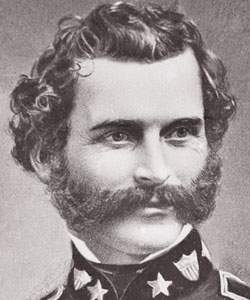Gabriel James Rains (American National Biography)
Scholarship
With the outbreak of the Civil War, [Gabriel] Rains accepted a commission as brigadier general in the Confederate army. Assigned command of a brigade under General D. H. Hill, Rains commanded at Yorktown in 1861-1862 and led the retreat before General George McClellan's advancing army. Rains had experimented with explosives long before the Civil War, and at Yorktown he mined the adjoining waters. When he retreated from Yorktown he mined the road against pursuing Union cavalry and again mined the roads at Williamsburg. In the resulting outcry from the Union army and newspapers, his corps commander, General James Longstreet, forbade the use of land mines. The Confederate secretary of war accepted their use but reprimanded Rains for questioning the authority of his corps commander. Rains persisted and convinced President Jefferson Davis of both the ethical legitimacy and the military value of mine warfare. One sign of the shift from limited to total war in tactics was the conversion, as the war progressed, of most of his Confederate and Union critics to the ethical legitimacy of this emerging form of warfare. Rains subsequently used land mines to protect the land approaches to Richmond, Mobile, and Charleston.
Edward Hagerman, "Rains, Gabriel James," American National Biography Online, February 2000, http://www.anb.org/articles/05/05-00645.html.



